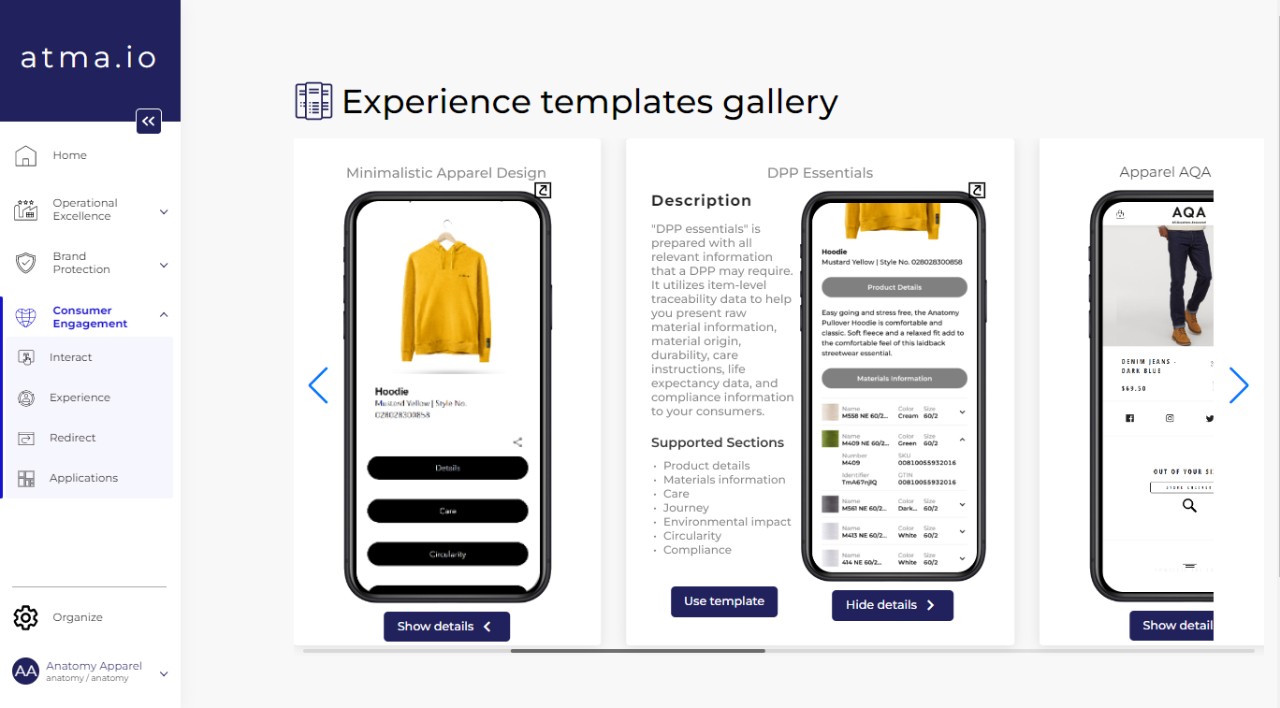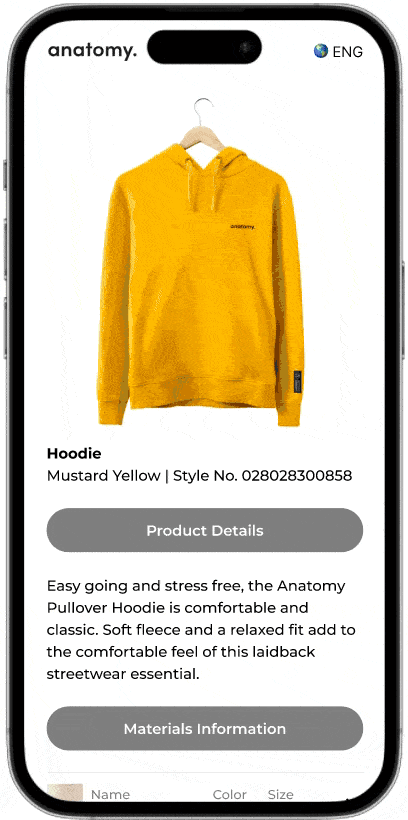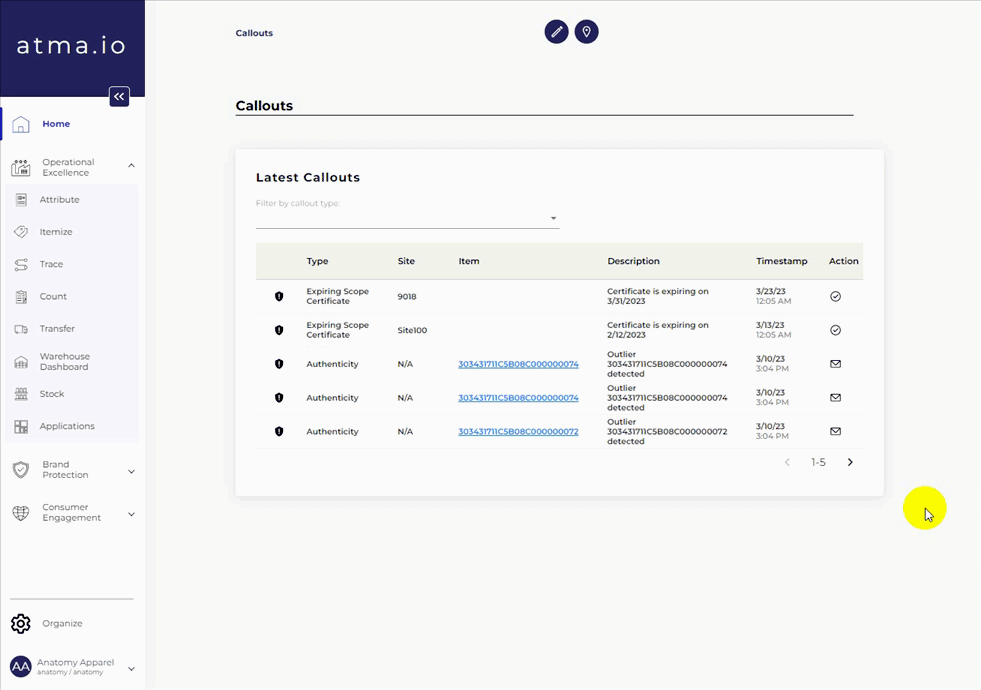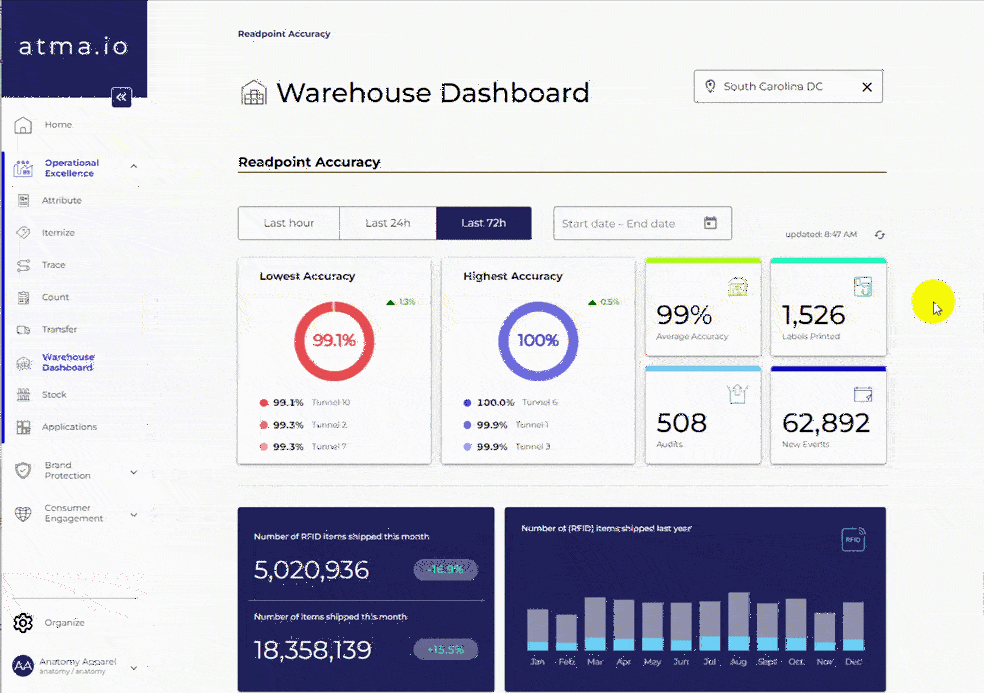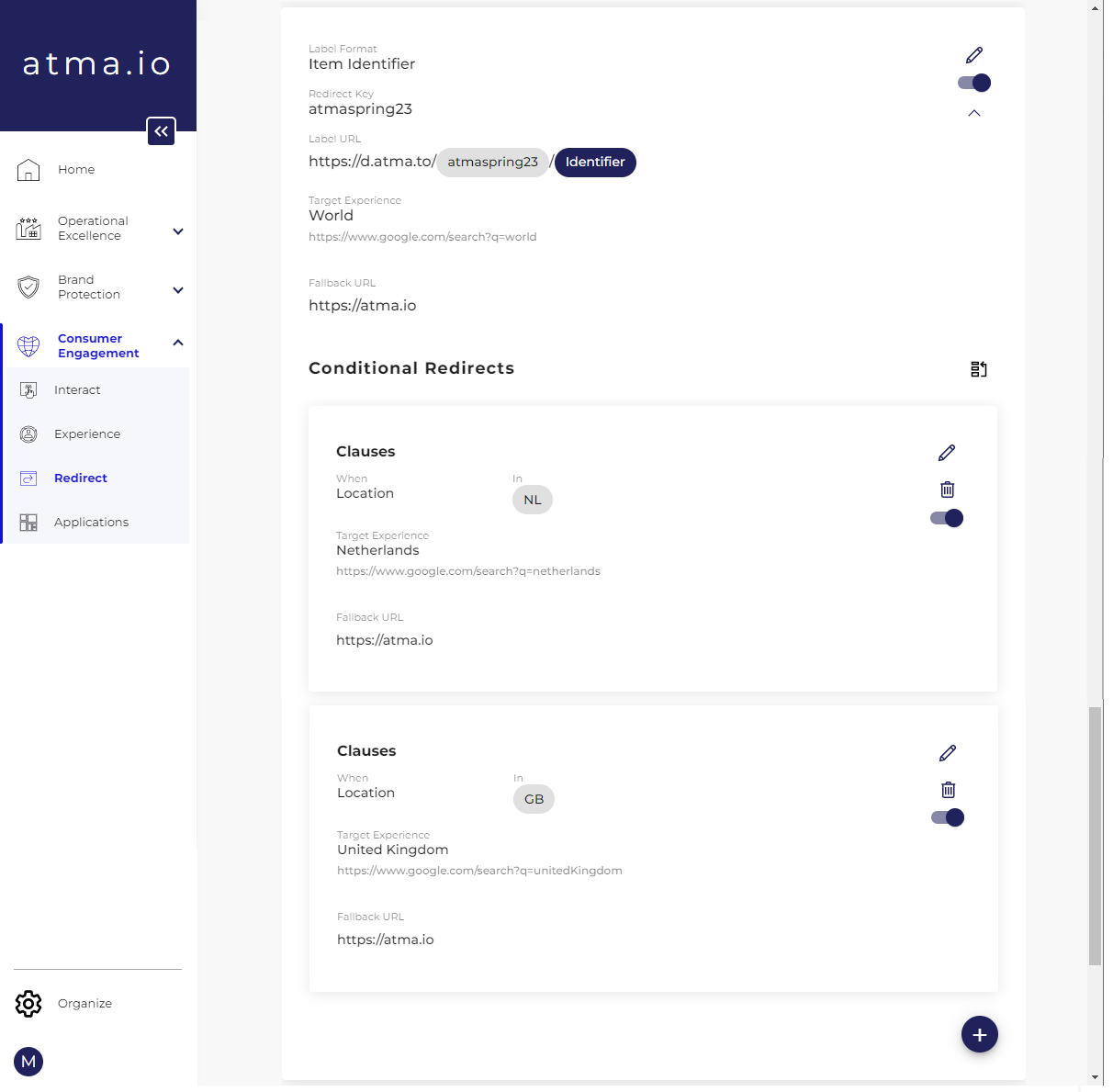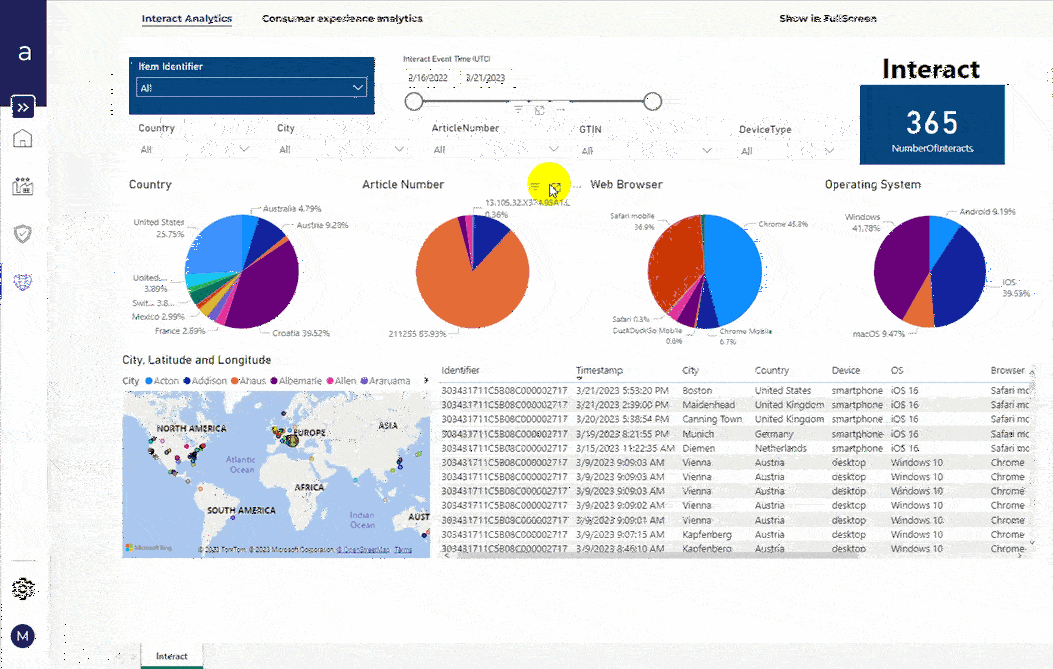What's new?
The new consumer experience templates designed to prepare you and your brand for Digital Product Passports (DPP) can be your answer for the upcoming DPP legislation. Raw material details and origin, certificates, carbon footprint, and recycling information are just some of the insights that can be added to the DPP experience through the atma.io template and shared with the consumers.
Problem solved / use cases?
The DPP initiative is part of the Ecodesign for Sustainable Products Regulation (ESPR) and one of the key actions under the EU’s Circular Economy Action Plan (CEAP). Similarly, the EU Batteries Regulation, also under the CEAP, is driving the initiative for digital battery passports, similar to digital product passports. DPP for the first product groups is expected to come into effect in 2026, which doesn’t leave long for businesses to prepare.
The DPP is key to the EU’s transition to a circular economy and will provide information about products’ environmental sustainability. It aims to improve traceability and transparency along the entire value chain of a product and to improve the management and sharing of product-related data which are critical to ensuring their sustainable use, prolonged life, and circularity.
The DPP will help consumers and businesses make informed choices when purchasing products, will enable more efficient recycling processes, and will help authorities to better perform checks and controls.
How does it work?
The atma.io platform enables you to prepare the consumer experiences with the relevant information that a DPP may require. It utilizes item-level traceability data and the consumer experiences designer to help you present raw material information, material origin, durability, care instructions, life expectancy data, and compliance information to your consumers. .

